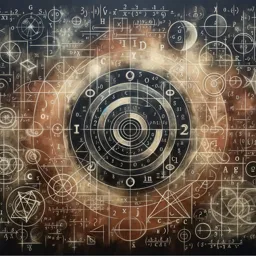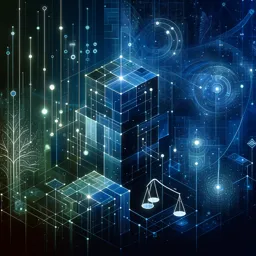Calculus is a vast and fascinating field of mathematics that extends far beyond the basics of derivatives and integrals. For students interested in exploring deeper into this subject, advanced topics in calculus offer a rich landscape of concepts and applications that challenge the mind and open up new areas of understanding. This article introduces some advanced topics in calculus, providing a glimpse into the complexities and beauties of higher-level mathematical analysis.
Fourier Series
Fourier series are used to represent periodic functions as sums of sines and cosines. This concept is fundamental in many areas of mathematics and engineering, particularly in signal processing, where it helps in analyzing and synthesizing periodic signals.
- Key Concepts:
- Decomposition of periodic functions into a sum of sinusoidal components.
- Applications in solving differential equations and analyzing signals.
- Fourier series convergence and the importance of coefficients.
Laplace Transforms
The Laplace transform is a powerful tool used to convert complex differential equations into simpler algebraic equations, making them easier to solve. It is widely used in engineering, physics, and control theory.
- Key Concepts:
- Transformation of time-domain functions into the s-domain.
- Solving linear differential equations and systems of differential equations.
- Applications in control systems and electrical engineering.
Complex Analysis
Complex analysis deals with functions of complex variables and is a cornerstone of advanced mathematics. It has profound implications in many fields, including fluid dynamics, quantum physics, and electrical engineering.
- Key Concepts:
- Functions of a complex variable, analyticity, and holomorphic functions.
- Contour integration, Cauchy’s theorem, and residue calculus.
- Applications in solving real integrals and in physics.
Differential Geometry
Differential geometry involves the study of curves and surfaces through calculus. It combines concepts from algebra and calculus to explore geometrical properties and their applications in physics and engineering.
- Key Concepts:
- Curvature, geodesics, and the intrinsic geometry of surfaces.
- The Gauss-Bonnet theorem and its implications.
- Applications in general relativity and the study of spacetime.
Partial Differential Equations (PDEs)
Partial differential equations extend the idea of differential equations to functions of several variables. They are fundamental in describing various physical phenomena such as heat conduction, wave propagation, and fluid dynamics.
- Key Concepts:
- Formulation and classification of PDEs (elliptic, parabolic, and hyperbolic).
- Methods of solution, including separation of variables and numerical approaches.
- Applications in physics, engineering, and finance.
Vector Calculus
Vector calculus extends calculus to vector fields, which are essential in physics and engineering for describing fields such as electromagnetic and gravitational fields.
- Key Concepts:
- Gradient, divergence, and curl of vector fields.
- Line integrals, surface integrals, and theorems of Green, Stokes, and Gauss.
- Applications in fluid dynamics and electromagnetism.
Functional Analysis
Functional analysis studies spaces of functions and the operators that act on them. It provides the framework for understanding various problems in mathematics, including differential equations and optimization.
- Key Concepts:
- Normed vector spaces, Banach spaces, and Hilbert spaces.
- Operators on these spaces and their properties.
- Applications in quantum mechanics and optimization problems.
Calculus of Variations
The calculus of variations deals with optimizing functionals, which are mappings from a set of functions to the real numbers. It has significant applications in physics, economics, and engineering.
- Key Concepts:
- Euler-Lagrange equation and finding extrema of functionals.
- Applications in mechanics, particularly in deriving the equations of motion.
- Optimization problems in various fields.
Conclusion
Advanced topics in calculus offer a deeper and more comprehensive understanding of mathematical concepts and their applications. From Fourier series and Laplace transforms to complex analysis and differential geometry, these topics expand the horizons of calculus and provide powerful tools for solving complex problems in science, engineering, and beyond. Exploring these advanced topics not only enhances mathematical skills but also opens up new possibilities for innovation and discovery in various fields. Whether you are a student, a researcher, or a professional, delving into advanced calculus can be a rewarding and enlightening journey.

























